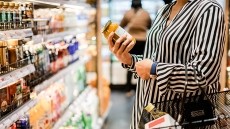EC should help retailers sell non-perishable goods after 'best before' date

Chantal Bruetschy, head of innovation and sustainability at the EC directorate general for health and consumers, said this was one option as part of a drive to educate consumers more about the difference between 'best before' and 'use by' dates.
She told delegates at a London conference on food waste recently that it was imperative the EC played a significant educational role across Europe.
Distinction
"What is important is that consumers and all the actors in the food chain are very clear about the distinction between 'best before' dates and 'use by' dates," said Bruetschy. "In simple terms: 'best before' dates are linked to quality and 'use by' dates are clearly linked to food safety and the microbiological presence in the food.
"Understanding the distinction between the two would probably encourage consumers to throw less away and maybe even help retailers to sell food closer to the 'best before' dates maybe in some cases even after, but we'd have to clarify that."
'Best before' dates are normally applied to shelf-stable foods such as biscuits, crisps and soft drinks. In the UK, it is not an offence to sell products after the 'best before' date with the exception of eggs provided they are safe to eat. But consumers are wary of buying such goods.
Main differences
An explanation sheet agreed with Member States on the main differences between the two dates is about to be published on the EC website for further use by all stakeholders, added Bruetschy.
This would form part of the EU's ongoing commitment to engage with the food industry as it works towards its EU 2020 Resources Efficiency Flagship Roadmap of which one section is centred on food waste, Bruetschy said.
"We are engaging with stakeholders to better define what we mean by food waste and food losses to see if we can encourage the food industry across the supply chain to sell a larger amount of food for human consumption," she added.





























